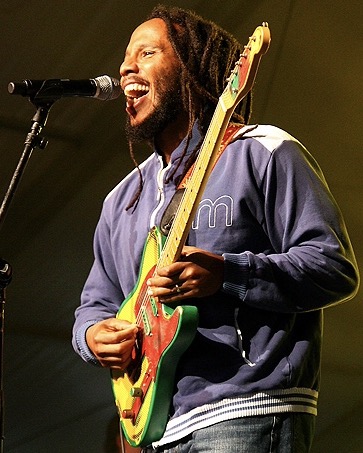Yes I will admit it. I follow the Royals…the British Royals that is. I am not entirely sure why. It may have something to do with the fact that I used to follow soap operas and I loved them: the everyday intrigue, the romance plots, the crazy shenanigans of characters whom you grow to love and hate. But maybe it is because of my name. It is such an English name. I have always secretly wondered if I was named after Princess Anne and not a student named Anne as claimed by my mother. For whatever reason, I have hardly missed a Royal wedding, and most notably, I was one of thousands who brought flowers to Kensington Palace when Princess Diana died in 1997. I was in London at the time, a starving student doing research on my dissertation which would one day become a book called African voices of the Atlantic slave trade, yet like almost everyone, everything seemed to stop for a moment when she died. I remember even writing an article for the London version of The Jamaican Gleaner about her visit to Jamaica which like many of her visits around the world was impactful and moving. She had reached out to the poor and sick and had done so with love.
So I follow the Royals. I may not buy the souvenir tea towels and mugs, though I have been tempted, but I follow them with one eye even as I am knee deep in researching their history and connection to the Atlantic slave trade. The irony is not lost on me, but alas, human beings are complicated.
But the title of this post is Reggae Royalty…so as a reader you might rightly ask about the connection. Well, like so many things in my work and life, a recurring theme has been erasure as well as finding my voice.
It turns out all along I was living in the midst of reggae royalty. Bob Marley literally lived down the street from my family and I had to pass his house every day going and coming from school. In those days, 56 Hope Road was a big pink house. I remember that clearly because it had to be the ONLY pink house on the block, certainly the only pink house I had ever seen. It always seemed bustling with activity – adults and children- but I felt distanced from it all. For no particular reason, it was a part of my world but not a part of it at the same time.
You see, I grew up learning all about British history and British figures. Henry VIII was like an old friend. As were Queen Victoria, Queen Elizabeth I and II and so on. It wasn’t surprising then that I was naturally interested in their descendants and their comings and goings.
But in spite of an otherwise amazing education in Jamaica before migrating to the US at the age of 12, I never learned anything about our musical royalty. I can’t remember a music class that featured anything on SKA, rocksteady, much less reggae artists like Bob Marley, Rita Marley or Jimmy Cliff. I do remember Jamaican folksongs were valorized. I remember being very attracted to them and for that I am grateful. I wanted to sing them so badly that I tried to join my school choir…three times. I can’t sing; not then, not now. That was not going to stop me, however, from joining the choir so that I could sing at the annual Jamaican Folk festival where all the schools competed for a prize. I tried out three times and the first two times, I was politely told no. I kept working on it, as if my life depended on joining this choir and on the third try, the choir mistress said yes. It was a moment of unbelievable joy. I don’t know if by chance I was in tune that day or she felt sorry for me or she was just worn down by my persistence. Whatever the case, I was in and not only in but was eventually given a duet opportunity which in retrospect I am sure they regretted.
Nonetheless, I was in heaven singing my African inspired Jamaican folksongs —” Evening Time”–being my favorite. But I never learned anything of more recent musical history in my early childhood….even though it was all around me. Bob Marley was at the height of his fame and I lived down the street from him and passed his house every day. It is a museum now, but it was his house then. It was a place he shared with his family and a place where he made music. There I was that close to Reggae royalty with hardly a clue.
I recounted in a previous post that while in college, I had to go abroad to rediscover Marley. I had to learn from others–again ironically in Europe- of his magic and his message of peace not war, his embrace of his African and Pan African identity, his giving voice to the poor and ultimately, his message of love.
It never left me after that…and has been a part of my life and work ever since, but I still sometimes feel like I missed out. So many of us of African descent are living fragmented lives: one life in official institutions of school and church, and another muted life outside of them.
What does Marley say in the song, Babylon system-— “tell the children the truth.” It is a dream of mine that children at an early age get to learn that there is more than one royalty out there. With due respect to the British royals (in particular Queen Elizabeth who presided over decolonization efforts and did her best to support the Commonwealth and King Charles who has long championed sustainable efforts), there was also the Solomonic Dynasty of Ethiopia which lasted over seven hundred years and only ended in 1974 when Emperor Haile Selassie I was overthrown in a coup d’etat. I not only grew up knowing nothing of this ancient dynasty and others before it, but little of the one unfolding in front of me.
Something about that speaks of fragments and I want to piece the fragments back together, much like the Japanese practice of kintsugi — the ancient practice of repairing broken vessels with gold. The gold for me is writing an upcoming book on Jamaica’s history and the need to heal from this history. (N.B. To my terrific editor, it IS coming.) The gold for me is also in discovering and enjoying the work of Marley’s progeny. They are heroically continuing the legacy of their father, a legacy worthy of great admiration though not idolatry; for he had his flaws as do all of us. Perhaps it is fitting that his son, Stephen Marley, sings to the sound of plaintive drums, “Let those without sin cast the first stone.” Ultimately, when I listen to this and other songs including and especially the Old Slave Mill and the recent My Sweet Lord by Damian Marley, I recognize themes from my life and work and I feel like the pieces are coming together.
Yet though there is something hopeful about this idea of repair, if I am truthful, there is also some sadness there ..and loss.
Emha, CC BY-SA 4.0 <https://creativecommons.org/licenses/by-sa/4.0>, via Wikimedia Commons
Some of the descendants, Damian Marley and Ziggy Marley.
Jay West, CC BY-SA 3.0 <http://creativecommons.org/licenses/by-sa/3.0/>, via Wikimedia Commons
Anne C. Bailey, author of The Weeping Time: Memory and the Largest Slave Auction in American History. (Cambridge University Press, 2017)




 Find Anne C. Bailey's non-fiction book :
Find Anne C. Bailey's non-fiction book : 



